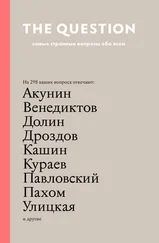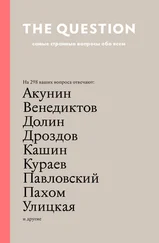Pronek would wait for Andrea to get her lunch break, and he would roam the shop, browsing through postcards, trying on aprons adorned with Picasso or Monet pictures, reading books on African art. Once he located all the cameras in the store, disinterested little eyes gazing from distant upper corners, and tried to find a spot not covered by a camera, and found none. Sometimes he would just find an inconspicuous position in the store, hiding behind a curtain of posters, or pretending to be reading a book, and he would watch Andrea smiling at the customers, gracefully returning their credit cards, or handing a bagful of artful merchandise over the counter. Then she would get off and they would drift through the museum, never holding hands. They would hide in the American Furniture and Arts section, where they would venture into illicit, deliciously dangerous, touching, under the worried, worried gaze of George Washington; or under the conjugal gaze of Mr. and Mrs. Daniel Hubbard — Daniel’s promontory chin reaching into the glorious revolutionary future; or the sovereignly chaste gaze of Abigail Cheseborough. Of course, most of these names meant nothing to Pronek, but they all looked devoutly uncomfortable. Pronek and Andrea would pussyfoot around a Lincoln staring at marble tiles under their feet, apparently pensive, in duck-beak boots and with a duck-beak beard, stepping forward, his hands locked on his leaderly butt. And there was a Lincoln welded to an uncomfortable brazen chair, worried all over again, wearing the same boots, except Pronek could see the big-toe lumps and imagine the sweaty, swollen feet and the ingrown toenails causing a lot of banal pain.
They would roam through the armor section, where metal man-sheaths suggested an eerie presence, as if the bodies that were meant to fill those armors were stored somewhere in the warehouse. They would follow a battalion of high school kids, predominantly blond and obese (“Cornfed,” Andrea would whisper), who were hee-hawing in front of naked-lady paintings, as their faces worked on the spring collection of pimples. They would start looking at paintings of the fourteenth century, and then move chronologically, with everyone else, counterclockwise. It seemed to Pronek that between the fourteenth and seventeenth centuries the main human activities were suffering, torture, fear, and rape. “Did you have the sixteenth century in Sarajevo?” Andrea asked him once. “Yeah,” our friend said. “But it was different.” He would try to sound cultured and civilized — to play the role of a European, as it were — and make the most of his two-hour visit to the Louvre, which he had mainly spent lost in a nightmarish eighteenth-century wing. He would try to devote a reasonable portion of thinking to each painting, but would often find himself staring at the carved frames and blank walls around the painting, yawning like an excited monkey. In the room that contained some Rape of Lucrece he stared at Lucrece’s torn pearl necklace eternally in midair and thought about the incredible amount of yawning that could be witnessed in museums, mainly because of the lack of air circulation, as if breathing would impair understanding of Great Art.
A senior citizen in a glaring pink jacket stopped in front of the Rape and gasped.
Her favorite painting was humongous and completely black — black wrinkles, black smudges, black puckered paint, and Pronek liked it, but didn’t know why. They would gawk at it for a while and Andrea would say: “Who are we in the hands of an angry God?”
One day, Pronek and Andrea descended to the miniature rooms. “Begin to your left,” said the sign on the wall, and when they began to their right, an elderly lady, the Cerberus of the miniature rooms, with a puffy hairdo and thin lips, issued a warning with a fiery glance and a significant tightening of her lips, so they began to their left. There was a fair-haired brat darting around like a crazed colt, and occasionally peering behind the pane into the miniature rooms. Then he would start running around again and holler: “Awesome, baby! Awesome, baby!” The rooms were small, very small. Pronek had never seen anything like that. A “Pennsylvania 1760” room had minuscule armchairs and desks, and a minute fireplace, with tiny fake flames. There was a little carpet and wee windows, and, behind them, a garden illuminated by an invisible sun. Pronek was the only one looking into the “Pennsylvania 1760” room, so he was the only one to see a minikin figure, with long white hair, and an impish mini-grin, running across the miniature room. Pronek could hear the tapping, the barely audible, evanescent, echoes of the creature’s tiny steps, which then disappeared into the garden.
Doubtless, a hallucination.
The brat was revolving around a center invisible to anyone but him, still shrieking; “Awesome, baby!” but then he got much too dizzy and collapsed on the floor. He lay right below a “Virginia 1790” room, holding his blond watermelon in his hands, panting, still saying: “Awesome, baby!”
Andrea went with Pronek to check out his coat, and Pronek said: “How can you ever know that you’re getting right coat? Maybe everything you have is replaced by something else. I think, maybe they’re going through your pockets. They’re photographing what’s in there, making keys, and changing everything. So when you get out, everything is different, and your memories don’t look right, so you change them.” He put his coat on. “You know what I mean? I cannot ever know that this is my real, old coat, but I must wear it anyway, because there’s no other coat, and I must make memories about it.”
“You Eastern Europeans are pretty weird,” Andrea said.
When Pronek came back home (albeit it was Andrea’s home), Carwin leapt off the couch, in all likelihood interrupted while masturbating, and hurried to his room. Pronek changed the channel from The Dukes of Hazzard to CNN and saw a crowd of people in front of the parliament building in Sarajevo, cowering and hastening to find cover, or just roaming, confused by the sniper fire. There was a quick shot of a sneakered foot paired with a sneakerless foot, both twitching, and a rotund big toe protruding, while the rest of the body was obscured by a cluster of people trying to help, some of them crying and wiping their tears with bloody hands.
Then there was the national weather forecast, so Pronek got up and got himself a dirty glass of ginger ale.
The Question of Bruno
Jozef Pronek decided to stay in the United States, possibly for the rest of his life, in the middle of a snowy night, as snowflakes were pressing their crystal faces against the window pane, after Carwin dropped a pot of rotting spaghetti on the floor and said: “Fuck!” He woke up, his heart pounding again (yes, it had pounded before), having dreamt of dogs tearing his body apart — a German shepherd going for his throat, a poodle for his calves. Through the door ajar, he could see Carwin trying to clean and spreading the red mush, as if painting, all over the floor. It looked like blood and brains to Pronek. He imagined himself lying on that floor, the insides of his head slowly leaking out, feeling no pain, just dizziness. Carwin, having pensively scratched his crotch, decided to abandon the cover-up, said: “Fuck!” once again to seal his uncompromising decision, and then stomped toward the couch to watch TV.
Next morning he woke up ill, with his forehead and the nape of his neck throbbing. Andrea was gone, he heard the TV, but he couldn’t get up, so he closed his eyes and plummeted to the bottom of slumber. He kept coming in and out of listless dreams about Sarajevo, in which (for example) he would try to draw the map of the city in English, but couldn’t do it, because he couldn’t draw in English. Or he would be walking down his street (passersby carrying pointed black umbrellas, looking at him askance) and it would impossibly intersect with the wrong street, so he couldn’t find the right direction.
Читать дальше












